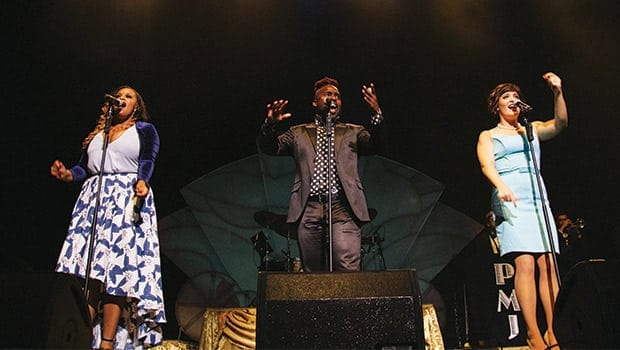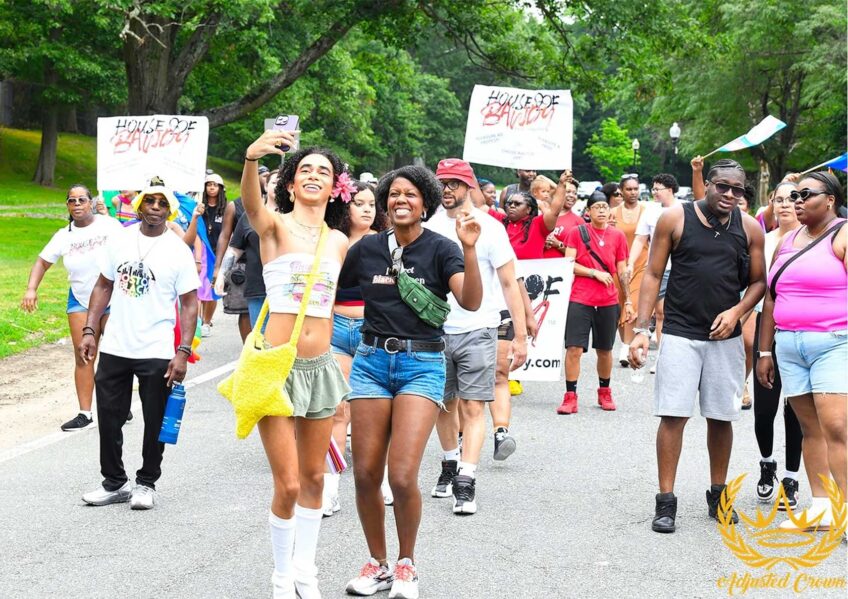
On Thursday, Oct. 6, the Wang Theatre went back in time. Hundreds of music lovers in crinolines, bowties and fascinators came out to hear the retro sounds of Scott Bradlee’s Postmodern Jukebox. The group aims to bring quality and talent back to the music industry by adapting popular songs in old-fashioned, vocal-heavy styles.
Postmodern Jukebox is known for their retro beats, but on their current world tour, the group is celebrating soul, hip-hop and jazz in a whole new way. Powerhouse singer and emcee Mykal Kilgore brought the audience to its feet with his rendition of “My Heart Will Go On,” re-imagined as a ‘50s style Jackie Wilson tribute.
One of the featured singers of the evening was Maiya Sykes, a songwriter, actress and vocalist who previously has toured with Macy Gray and competed on “The Voice.” In addition to her musical talents, Sykes was accepted to Yale, Princeton and Harvard, and attended Yale with a triple major in political science, African American studies and musical composition. Sykes told the audience that when she joined the group, Bradlee approached her about bringing hip-hop to its repertoire. At the Thursday evening show, she performed a jazz rendition of B.I.G.’s “Juicy” that had the notorious rapper clapping from beyond the grave. Sykes seamlessly mixed tight rap lines with flowing scales and punchy scatting.
Previously, the group was focused primarily on pop songs, which, though more easily translatable to different musical eras, often favored white artists. Sykes’s ode to Biggie heralds openness to genres championed by the black community.
Postmodern Jukebox’s performance showcased a full band, burlesque stylings from Ariana Savalas, an inspired tap show from Sarah Reich and the comedic romping and showmanship of the Ziegfeld Follies. What makes the show so successful is the whimsy and entertainment of a variety show without the cheapness. Postmodern Jukebox emphasizes vocal talent in a world where synthesizing and auto-tune dominate many tracks.
Bradlee himself underscored the talent base of the group when he performed an impromptu piano mash-up of Lady Gaga, George Gershwin, Bon Jovi and Rick Astley at the audience’s request. Each piece is tailored to a different era, ranging from the 1920s to the 1980s. The time period is embodied not only in the music’s composition but in costume and dance, so that all combine to convey the decade.
Postmodern Jukebox represents not only a return to the glory days of vocal prestige, but a rewriting of a musical history in which black performers often were shafted in favor of their white counterparts. With heavyweights like Sykes and Kilgore bringing soul, funk and rap to the scene, it’s clear that Postmodern Jukebox seeks to represent talent of all backgrounds.







